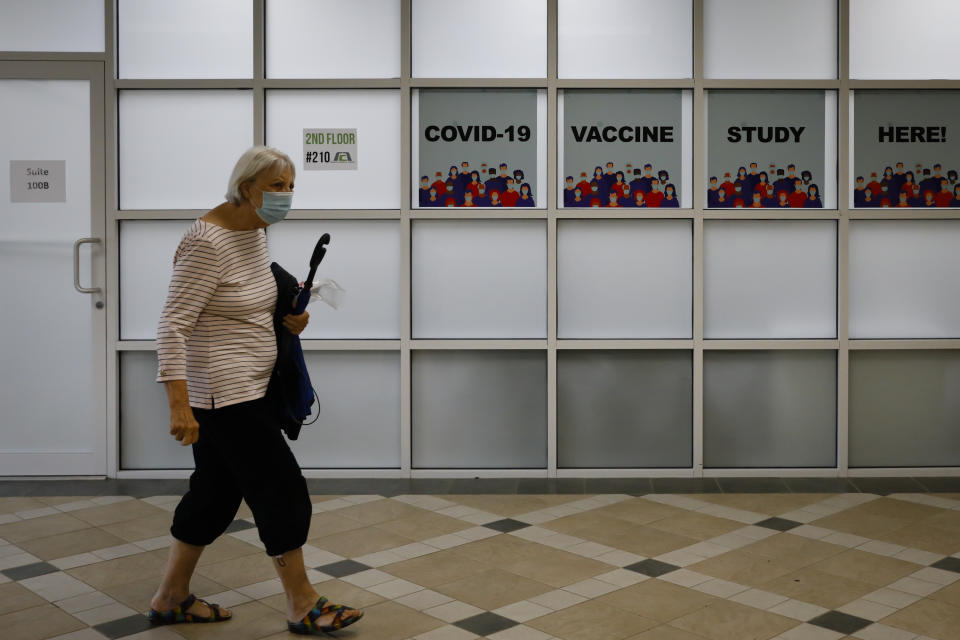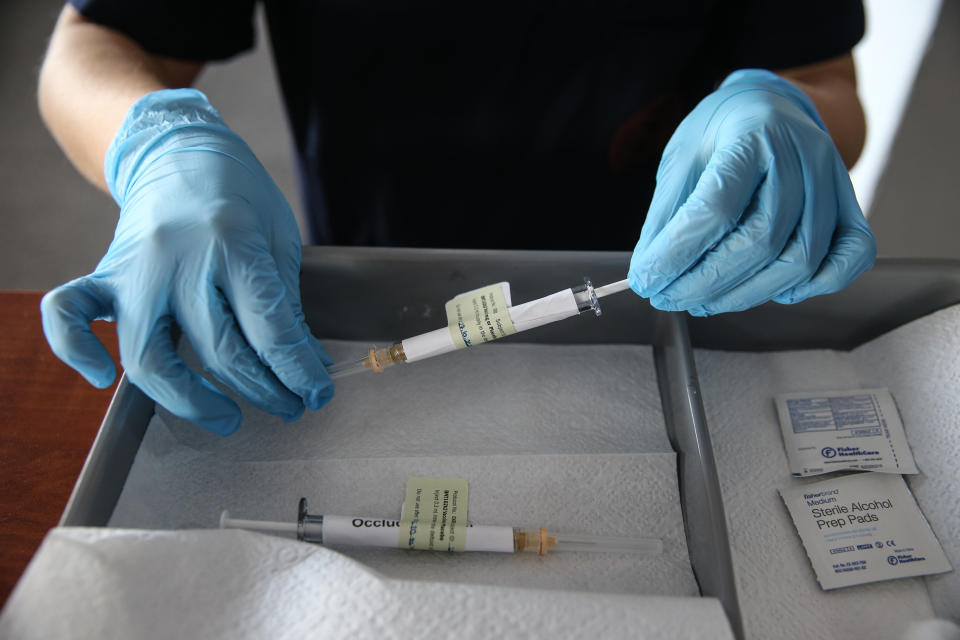Pfizer vaccine could be key to conquering COVID-19 — but don't throw away your mask yet
On Monday, Pfizer announced in a press release that its coronavirus vaccine candidate was more than 90 percent effective in preventing COVID-19 in study participants. The news from the largest pharmaceutical company in the U.S., which has been working in partnership with German firm BioNTech, came just as the U.S. has been experiencing a record number of cases of the deadly virus, and set off a wave of celebrations — stocks surged, the Trump camp touted it as a victory and top infectious disease expert Dr. Anthony Fauci described the results as “extraordinary.”
Previously, Fauci and the Food and Drug Administration had said a coronavirus vaccine that protected 50 to 60 percent of the population would have been acceptable, so a 90 percent efficacy represents “light at the end of the tunnel,” as Pfizer CEO Dr. Albert Bourla told MSNBC. But there are still some significant unknowns.

The press release from Pfizer does not include the two months of safety data required by the FDA before companies can apply for emergency use authorization; Pfizer says it should have this by next week. The company’s Phase III clinical trial began in July and has enrolled 43,538 participants, with about 30 percent of U.S. participants from “racially and ethnically diverse backgrounds.” But beyond that, nothing has been made public yet about how participants from different demographics have reacted to the vaccine.
“We still don’t know very much about the participants of the trial as far as how they responded to the vaccine, any side effects, any other complications, any comorbidities,” said Yahoo News medical contributor Dr. Dara Kass. “We will have more information when this data is published, so it’s not time to overanalyze this press release. It’s just time to wait and be optimistic about the idea that a vaccine for this coronavirus is likely coming.”

Information on how participants from different demographics — particularly those who are most vulnerable not only to infection but also to complications from infection — will be important. Black, Hispanic and Native American communities have been hit especially hard by the coronavirus pandemic, so insight into how the vaccine affected trial participants from those groups will be key. Information on trial participants from the vulnerable elderly population will also be crucial.
“We don’t have information yet about the kind of trial participants that were vaccinated and got infected, or vaccinated and were not infected,” Kass said. “We need to know more about which patients were protected by vaccination. Was it even across all demographics?”
If the vaccine is approved by the FDA, questions over how to distribute it will arise. The company has said it expects to produce up to 50 million doses globally by the end of the year, and up to 1.3 billion in 2021. But full immunity requires two doses, so the number of people who can be treated will be half that. Pfizer’s CEO also said that it’s still uncertain how long protection from the vaccine will last. If it ends up being a yearly or seasonal vaccine, production will have to be ramped up even further to meet demand annually.
The “very specific” requirements for handling this particular vaccine are also already frustrating health officials. CNN reports that Pfizer’s vaccine needs to be stored at minus 75 degrees Celsius — about 50 degrees colder than any vaccine currently used in the U.S. — and doctors’ offices, pharmacies and state labs don’t have freezers that go that low. Meanwhile, dry ice — which has been in high demand thanks to an increase in home food deliveries and in low supply owing to decreased production of carbon dioxide, a by-product of fossil-fuel combustion — could become a critical but hard-to-come-by component in the distribution process.
“All of the squares of the quilt have not been knit together very squarely at this point,” a longtime adviser on vaccines to the CDC told CNN regarding the distribution issues. “There are probably more questions than answers.”

And even if these vaccine hurdles are overcome, will enough people take it? Willingness to receive a coronavirus vaccine was abysmally low in a Yahoo News/YouGov poll taken last month, particularly among the more-at-risk African American community, with only 46 percent of white Americans and 27 percent of Black Americans saying they would take one if it were available.
The much-anticipated data release from Pfizer will be crucial to building public confidence that the vaccine is safe. But Kass explained that controlling the rise in cases, which could peak before a vaccine becomes available to the general population, should be our more immediate concern. The triad of precautions of hand-washing, distancing and mask-wearing will still be in place for the foreseeable future.
“The most important thing to remember is that this information actually doesn’t change our lives day to day right now,” Kass said of Pfizer’s announcement. “We’re excited about the possibility of a vaccine, but we need to keep our focus right now on stopping the spread of this virus in our communities.”
_____
Read more from Yahoo News:

 Yahoo Finance
Yahoo Finance 


